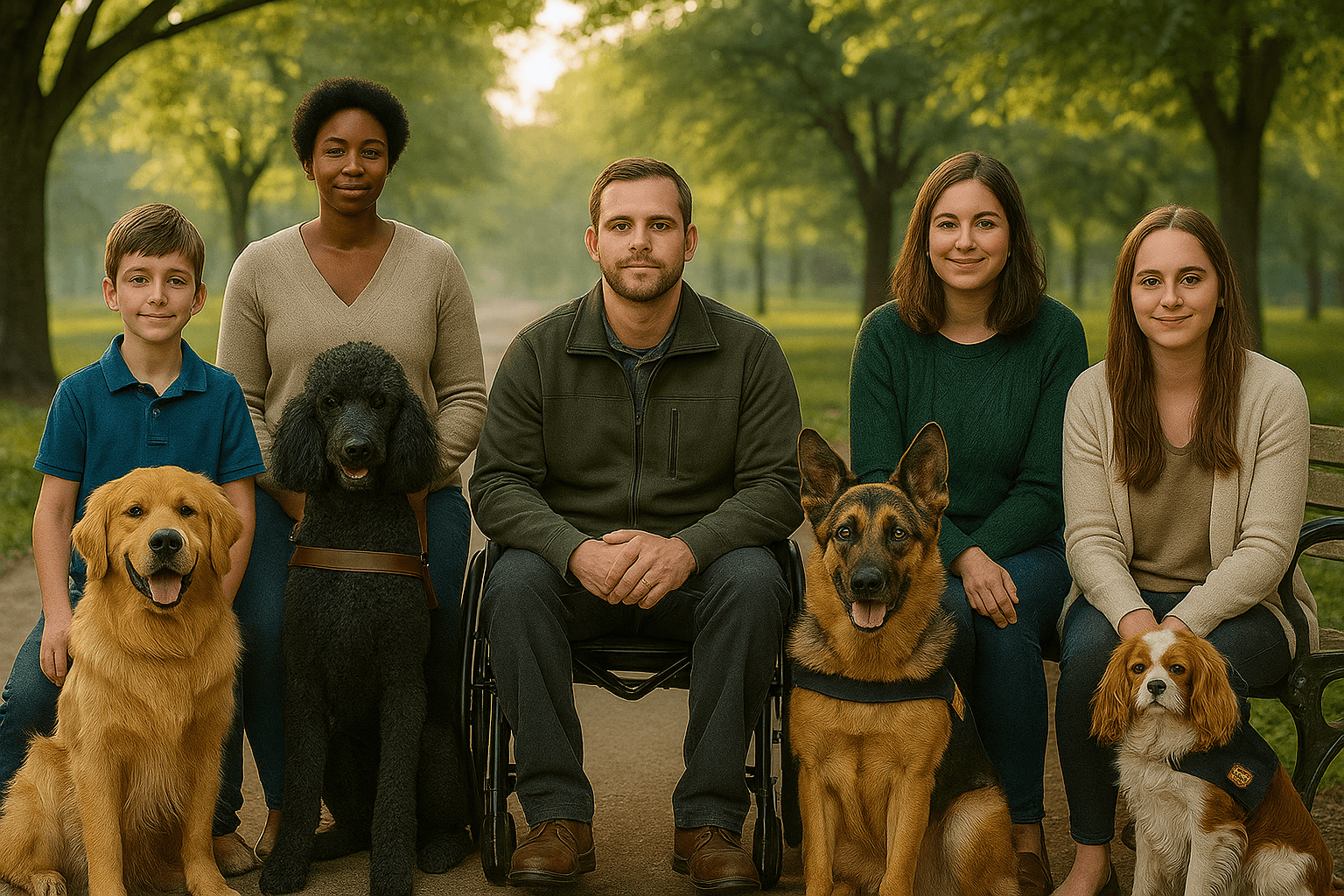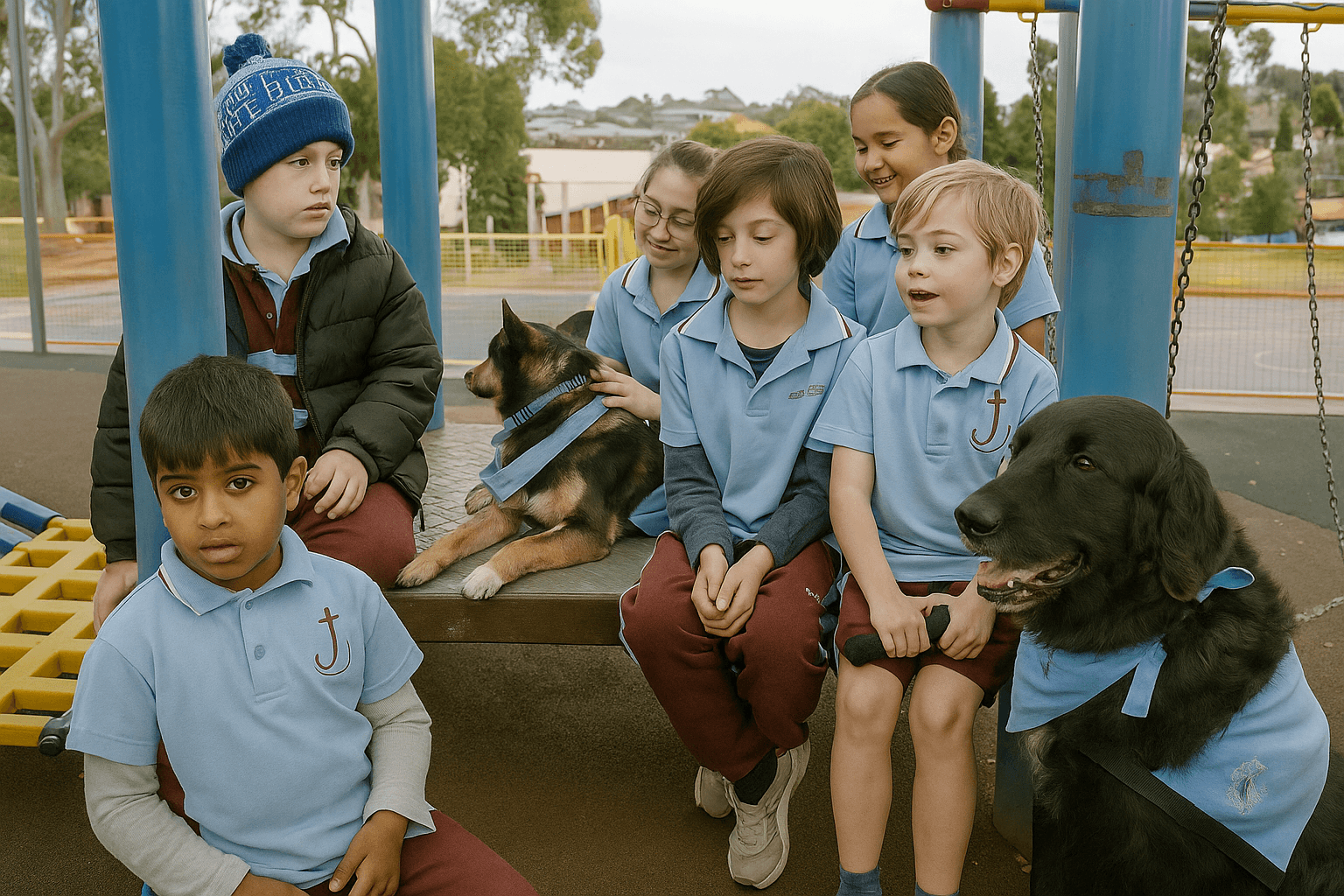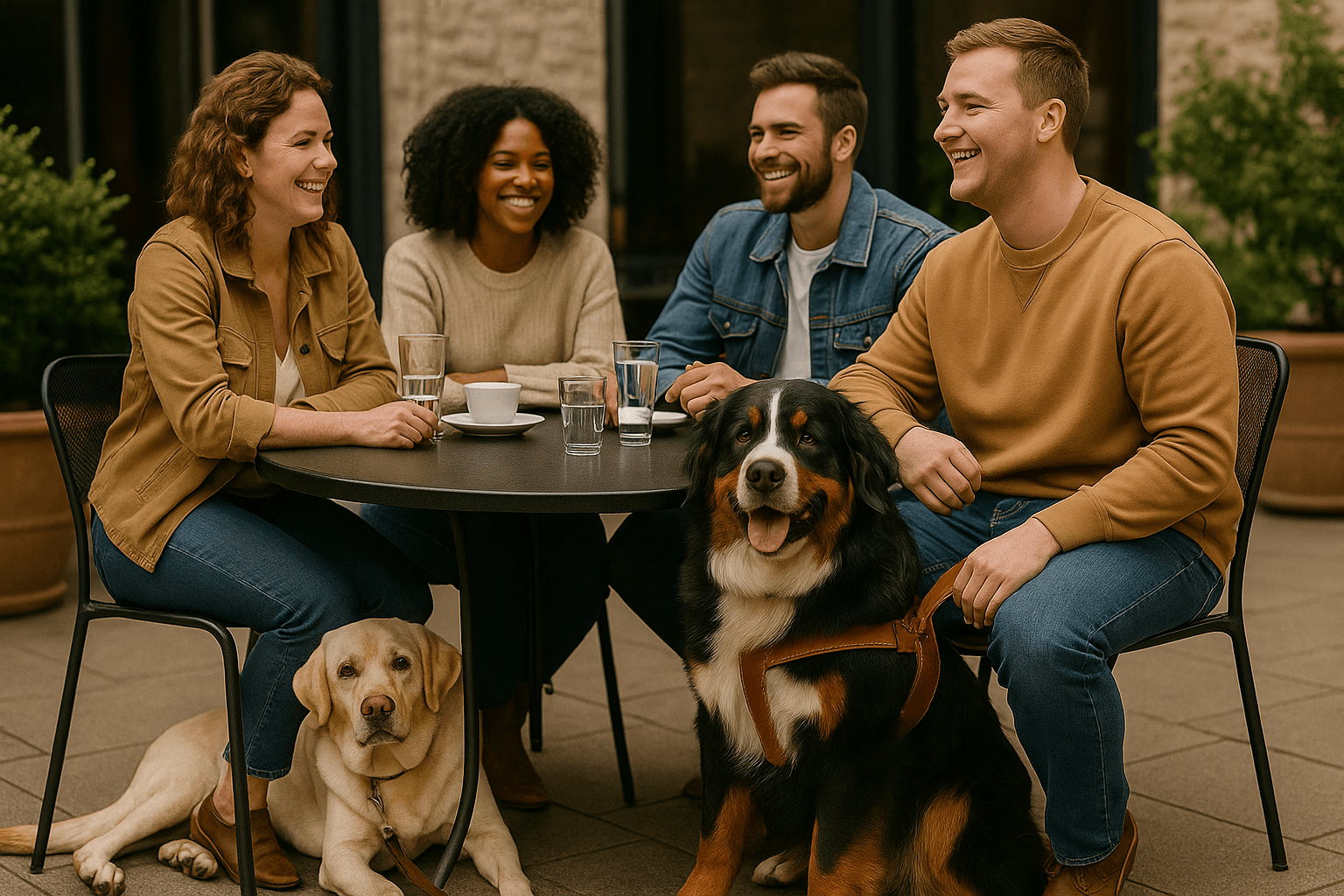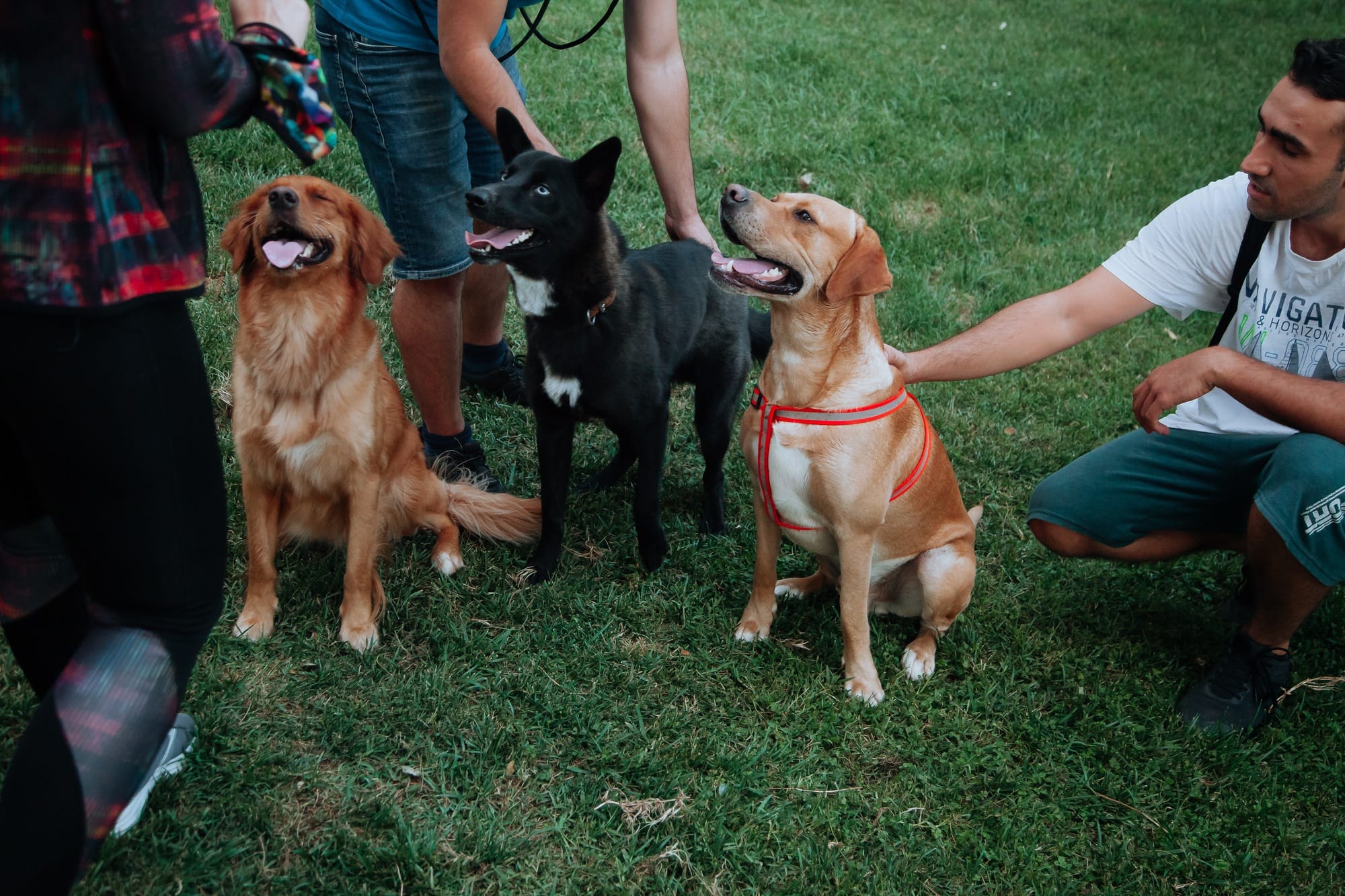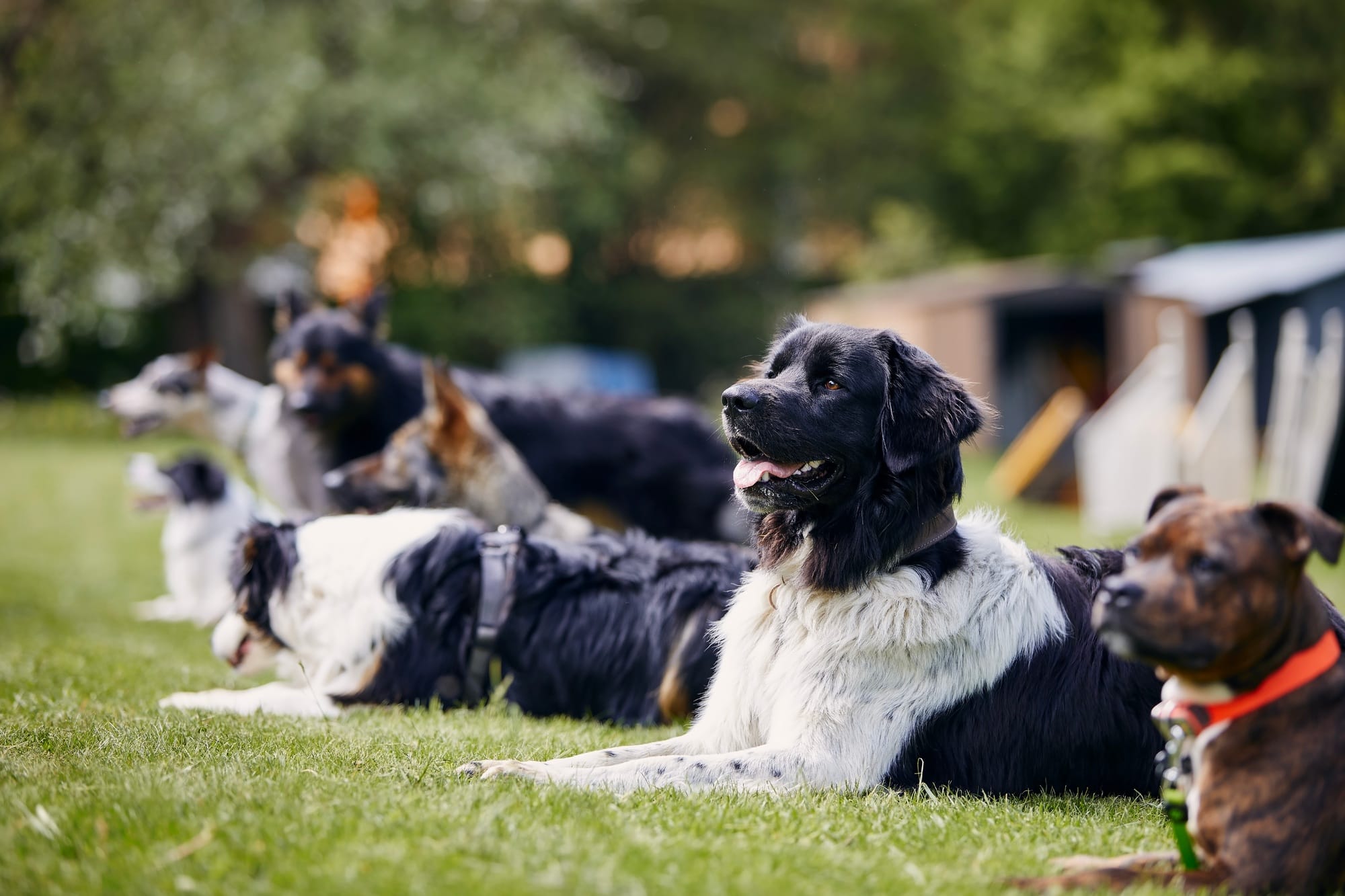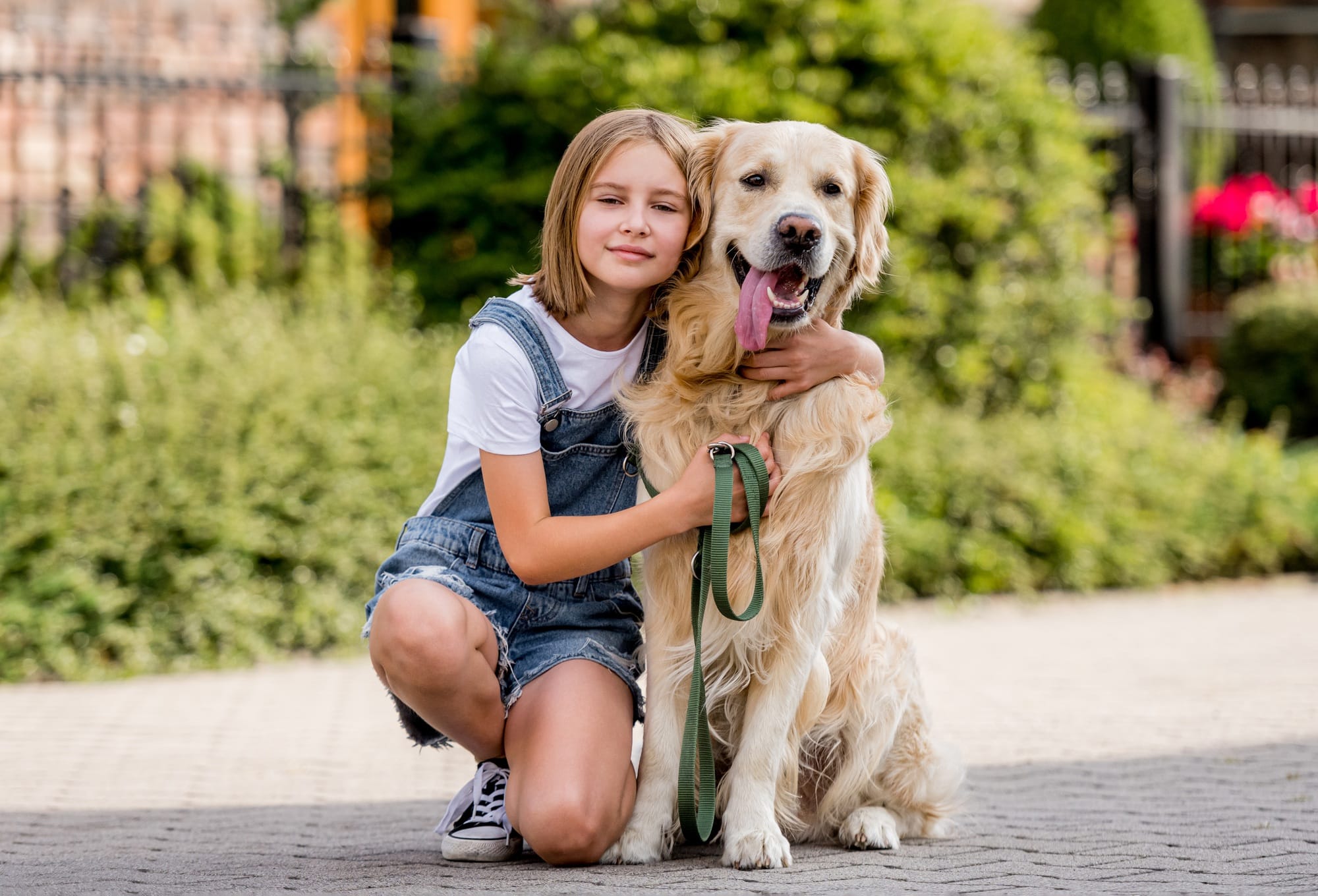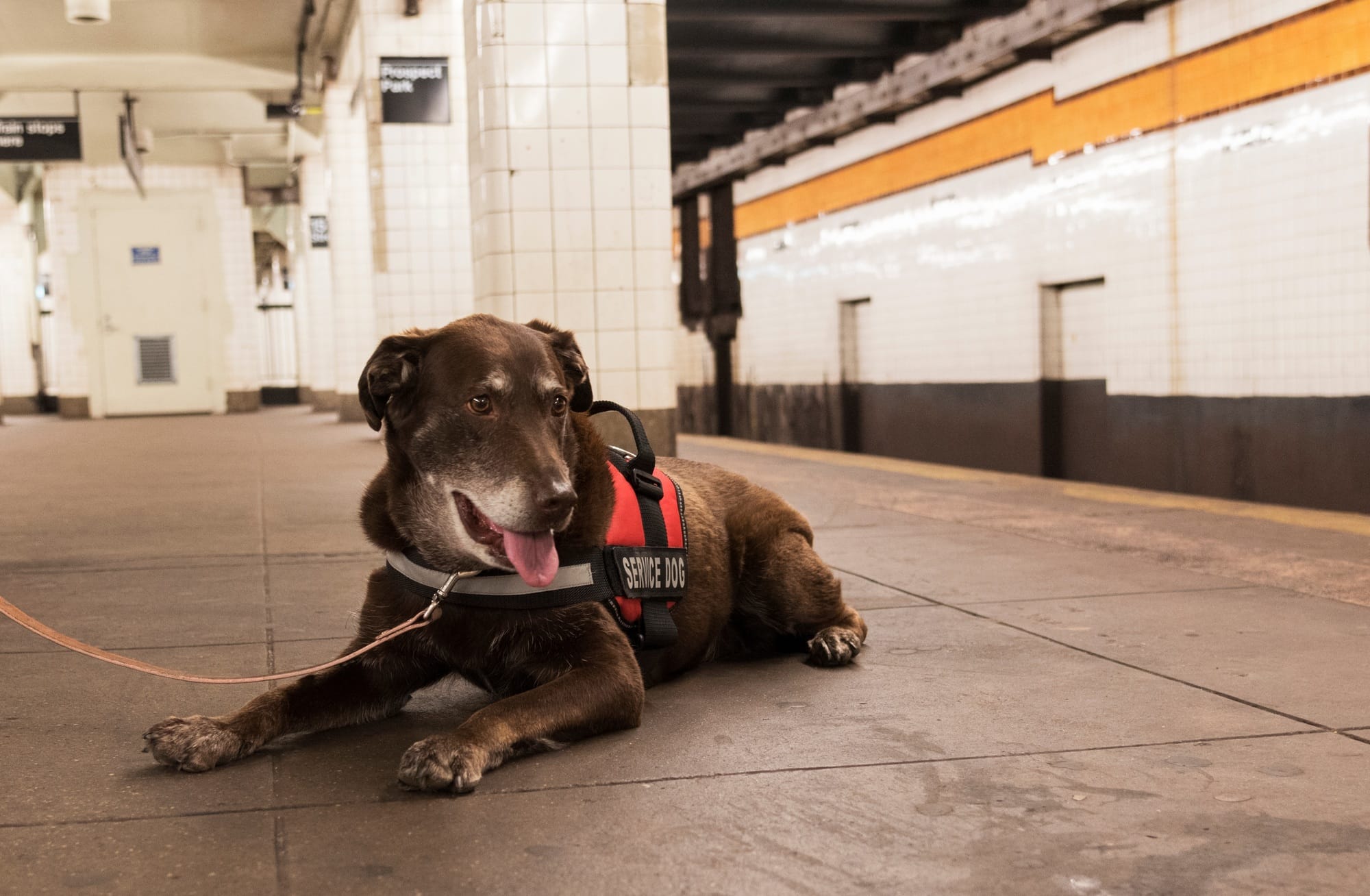Breeds and Types of Assistance Dogs
Paws For SupportAssistance Dogs in Australia
Assistance dogs provide safety, self-assurance, and improve independence for people with a disability. They are highly intelligent animals who are trained to perform a specific task for their handler. Assistance dogs need to complete nationally approved training with an organisation like Paws for Support. They are certified for public access rights in Australia. This means they can legally accompany their handler where pets usually are not invited. The Disability Discrimination Act 1992 (DDA) safeguards these rights.
What Kind of Help Can an Assistance Dog Provide?
Assistance dogs, trained to perform specific tasks, can support individuals with many disabilities.
Guide Dogs
Guide dogs help people who are blind or visually impaired. Supporting independent travel is important, and they help navigate and avoid obstacles. Even in crowded, uncertain public areas, this breed of dog needs to remain incredibly focused, composed, and predictable.
Signal Dogs
Dogs have incredible hearing, but these dogs are trained to notify their owner of noises that they may not be able to hear themselves. They alert for phones, doorbells, alarms, or even someone calling their name. Depending on the circumstances, these dogs are trained to make physical contact and guide their handler either towards or away from the sound.
Mobility Assistance Dogs
These canines help when mobility is an issue and with other physical impairments. They can help by pressing buttons, opening doors, or bringing objects. They can even stabilise someone who needs help walking. They also occasionally assist people who use wheelchairs.
Medical Alert Dogs
These dogs are trained to recognise changes in a handler’s health, including seizures, low blood sugar, and other ailments. They can call for assistance, get emergency medicine, or warn their handler (or others).
Canines for Psychiatric Assistance
These canines, who are trained to assist handlers with disorders like PTSD, anxiety, or psychosocial disabilities, can stop destructive behaviours, offer deep pressure therapy, or act as a physical barrier in crowded areas. Their work is not merely emotional support; it is specific and intentional.
Autism Assistance Dogs
Frequently paired with autistic children or young adults, these dogs can reduce tantrums, encourage conversation, and enhance social confidence. Additionally, they provide safety support by guiding the handler back to safety or preventing bolting.
Best Breeds for Assistance Dogs
Many dog breeds can become wonderful assistance dogs. It depends on the tasks they need to do. Some breeds are chosen more often because they’re calm, clever, and love to learn.
Labrador Retrievers
Labradors are one of the most popular breeds for assistance work. They’re smart, gentle, and easy to train. Their friendly nature makes them a perfect match for first-time handlers.
Golden Retrievers
Golden Retrievers are loving, loyal, and quick to learn. They’re perfect for helping with mobility support or psychiatric tasks.
Poodles
Poodles are very smart and don’t shed much, which helps people with allergies. They often work in medical alert or psychiatric assistance roles.
Border Collies and Collies
Collies are quick learners and very alert. They do best with experienced handlers who can keep their minds active. They’re excellent for hearing support and signal work.
German Shepherds
German Shepherds need very confident handlers. As larger dogs, they are strong and have an incredible work ethic. Their best qualities are being devoted, perceptive dogs who are excellent at protecting and guiding. They’re ideal for supporting people with autism and mobility.
Cavoodles and Other Small Breeds
Cavoodles are well suited for those with limited mobility. If a person with a disability is living in a smaller home, small dogs like Cavoodles, Miniature Poodles, or Spaniels are an excellent choice. They are especially well suited for medical alert roles or psychiatric assistance.
What Makes a Good Assistance Dog?
A good assistance dog needs more than basic obedience. They must stay calm in public, ignore distractions, and never show aggression or fear. They should enjoy learning, solve problems quickly, and be in excellent health. These qualities are essential for passing the Public Access Test (PAT)—a key step in getting service dog certification and registration in Australia.
Not every dog is suited to this kind of work. But many can succeed with the right temperament and proper training. At Paws For Support, we start with a free consultation to see if your dog is a good fit. If not, we’ll help you choose a breed that’s more likely to succeed.
To be certified, all assistance dogs must be trained to perform tasks that alleviate the effect of a disability. That’s what sets them apart—and what earns them public access rights.
Training and Certification Options
At Paws For Support, we help individuals and families train and certify their assistance dogs through our owner-led, step-by-step programmes. Whether you already have a dog or are just starting with a puppy, we’ll help you build a reliable, legally recognised support team.
We provide:
- Personalised training plans
- Preparation for the Public Access Test (PAT)
- Certification and handler ID upon passing
- Support with dog registration, NDIS, and state-specific requirements
Start Your Journey Today
Whether you’re just starting to explore assistance dog options or ready to begin training, we’re here to help. Book your free consultation and find out if your dog is a good fit—or let us help you choose the right breed for your needs.

